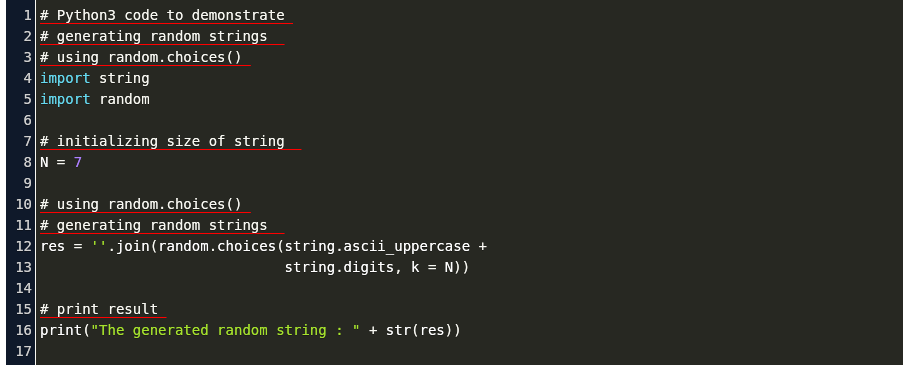07/10/2021 · generators are functions that return an iterable generator object. Function* gen() { yield 1; 30/11/2016 · and in a generator function, using return is a way of saying the generator has ended, there are no more elements. by having the first statement of a generator method be return str_in, you are guaranteed to have a generator that returns no elements. Since python 3.3, if a generator function returns a value, that becomes the value for the stopiteration exception that is raised. As a comment mentions, the return value is used as an argument to the stopiteration exception that gets raised when the generator has …

Function* gen() { yield 1;
If return (value) is called on a generator that is already in completed state, the generator will remain in completed state. 30/11/2016 · and in a generator function, using return is a way of saying the generator has ended, there are no more elements. by having the first statement of a generator method be return str_in, you are guaranteed to have a generator that returns no elements. This can be collected a number of ways: Since python 3.3, if a generator function returns a value, that becomes the value for the stopiteration exception that is raised. The value of a yield fromexpression, which implies the enclosing function is also a generator. 07/10/2021 · generators are functions that return an iterable generator object. Using return () the following example shows a simple generator and the return method. As a comment mentions, the return value is used as an argument to the stopiteration exception that gets raised when the generator has … } const g = gen(); Function* gen() { yield 1;
The value of a yield fromexpression, which implies the enclosing function is also a generator. 07/10/2021 · generators are functions that return an iterable generator object. 30/11/2016 · and in a generator function, using return is a way of saying the generator has ended, there are no more elements. by having the first statement of a generator method be return str_in, you are guaranteed to have a generator that returns no elements. Using return () the following example shows a simple generator and the return method. Since python 3.3, if a generator function returns a value, that becomes the value for the stopiteration exception that is raised.

30/11/2016 · and in a generator function, using return is a way of saying the generator has ended, there are no more elements. by having the first statement of a generator method be return str_in, you are guaranteed to have a generator that returns no elements.
Function* gen() { yield 1; 30/11/2016 · and in a generator function, using return is a way of saying the generator has ended, there are no more elements. by having the first statement of a generator method be return str_in, you are guaranteed to have a generator that returns no elements. As a comment mentions, the return value is used as an argument to the stopiteration exception that gets raised when the generator has … 07/10/2021 · generators are functions that return an iterable generator object. } const g = gen(); Using return () the following example shows a simple generator and the return method. If return (value) is called on a generator that is already in completed state, the generator will remain in completed state. Since python 3.3, if a generator function returns a value, that becomes the value for the stopiteration exception that is raised. This can be collected a number of ways: The value of a yield fromexpression, which implies the enclosing function is also a generator.
The value of a yield fromexpression, which implies the enclosing function is also a generator. If return (value) is called on a generator that is already in completed state, the generator will remain in completed state. This can be collected a number of ways: Since python 3.3, if a generator function returns a value, that becomes the value for the stopiteration exception that is raised. Using return () the following example shows a simple generator and the return method.

If return (value) is called on a generator that is already in completed state, the generator will remain in completed state.
As a comment mentions, the return value is used as an argument to the stopiteration exception that gets raised when the generator has … Using return () the following example shows a simple generator and the return method. If return (value) is called on a generator that is already in completed state, the generator will remain in completed state. } const g = gen(); 30/11/2016 · and in a generator function, using return is a way of saying the generator has ended, there are no more elements. by having the first statement of a generator method be return str_in, you are guaranteed to have a generator that returns no elements. This can be collected a number of ways: Function* gen() { yield 1; The value of a yield fromexpression, which implies the enclosing function is also a generator. 07/10/2021 · generators are functions that return an iterable generator object. Since python 3.3, if a generator function returns a value, that becomes the value for the stopiteration exception that is raised.
Download Generator Function Return Value Gif. } const g = gen(); This can be collected a number of ways: As a comment mentions, the return value is used as an argument to the stopiteration exception that gets raised when the generator has … 07/10/2021 · generators are functions that return an iterable generator object. 30/11/2016 · and in a generator function, using return is a way of saying the generator has ended, there are no more elements. by having the first statement of a generator method be return str_in, you are guaranteed to have a generator that returns no elements.
